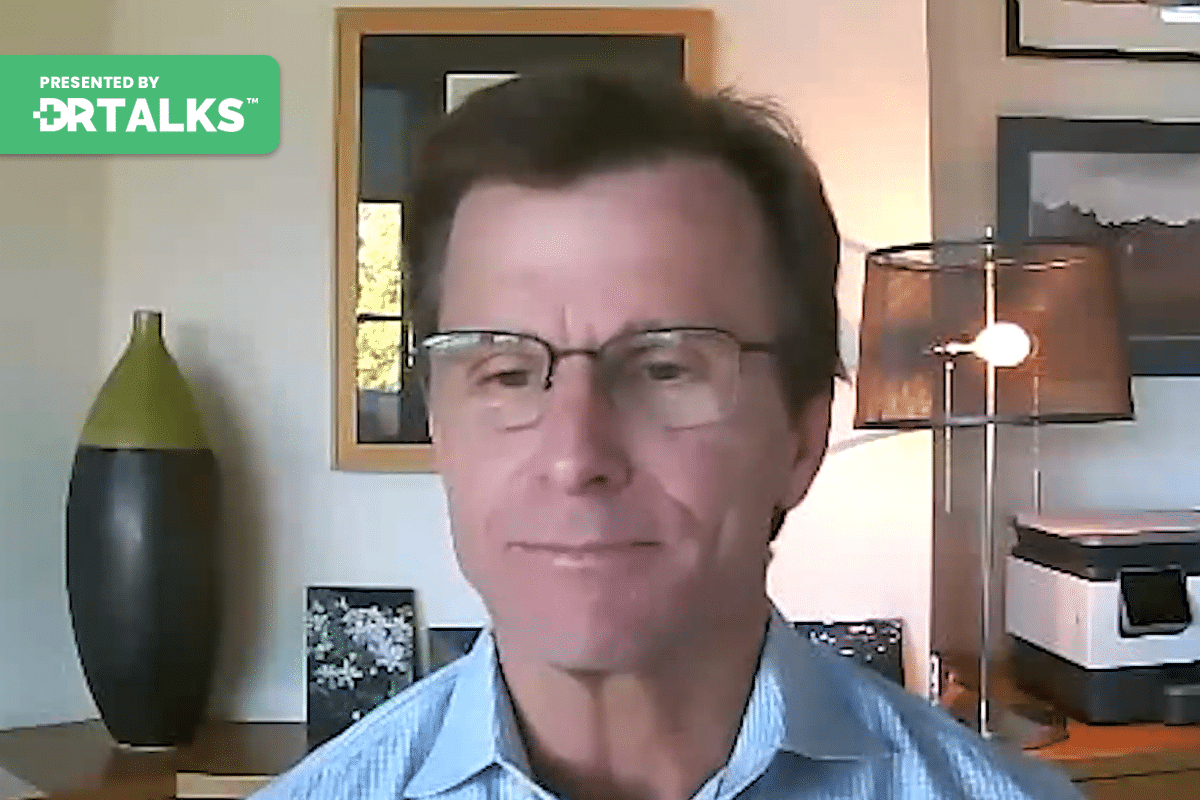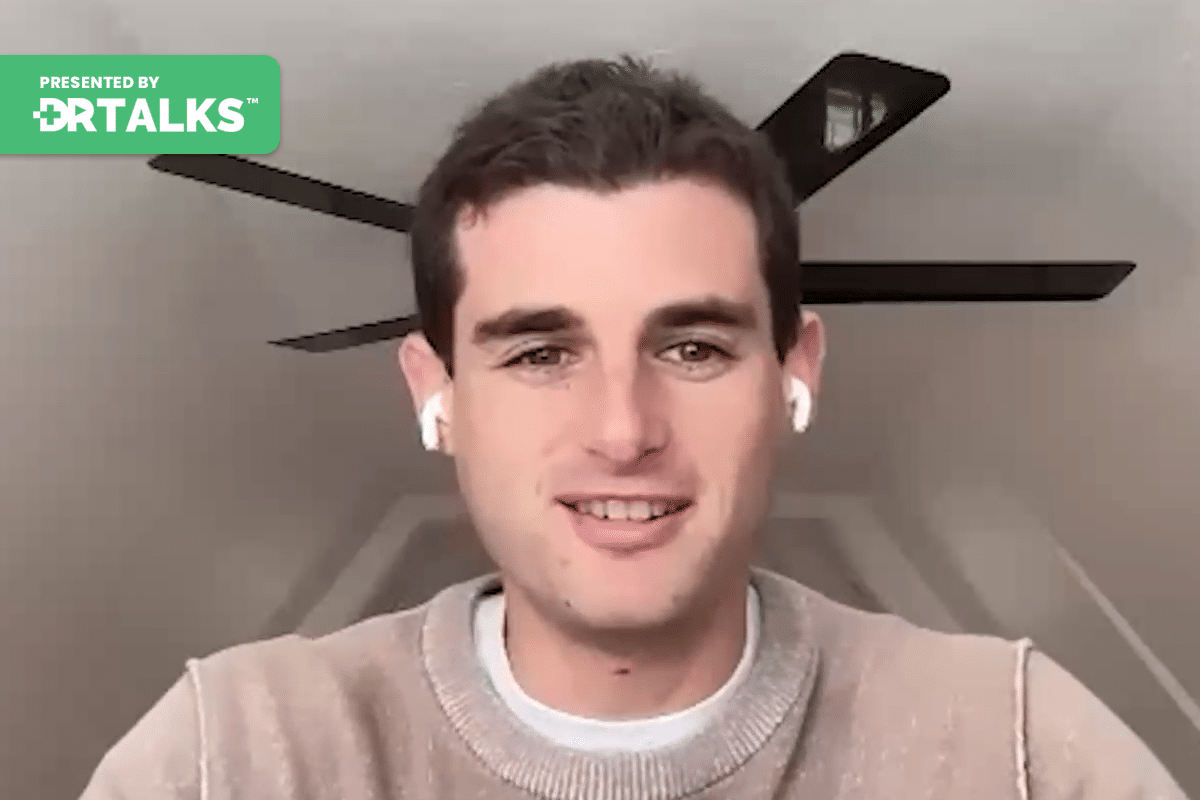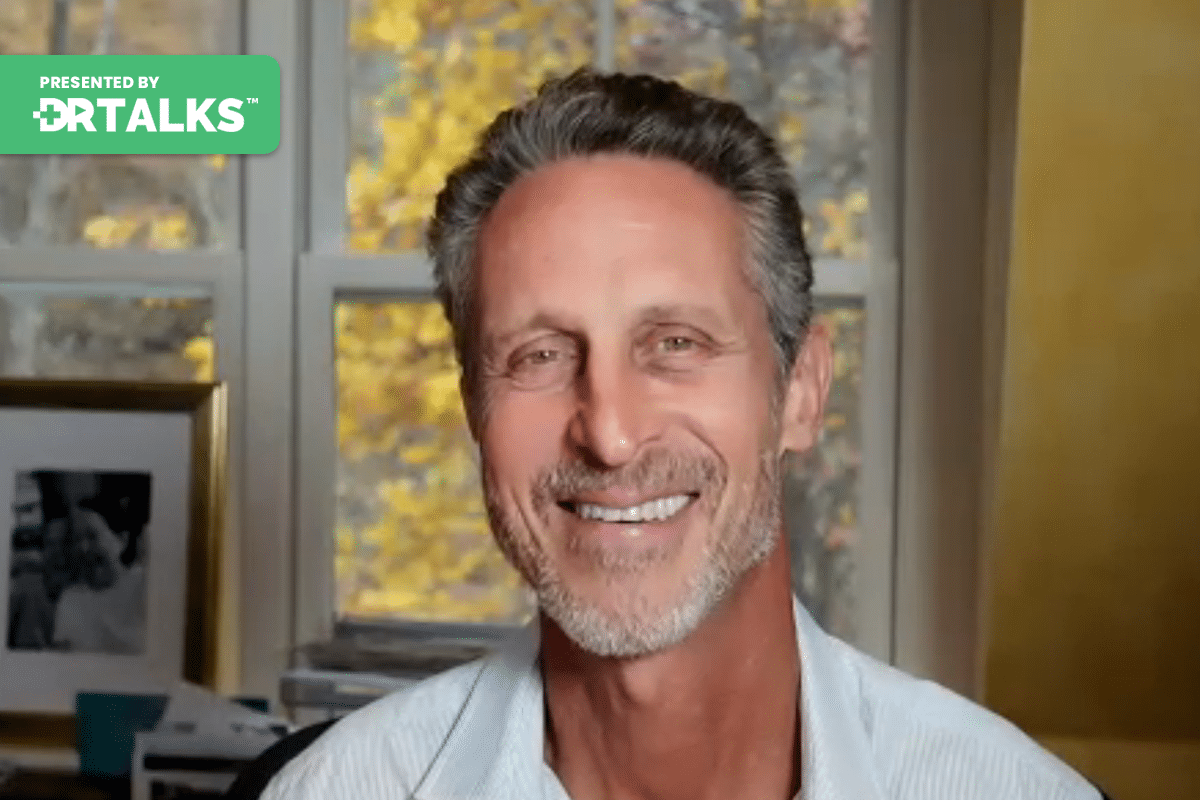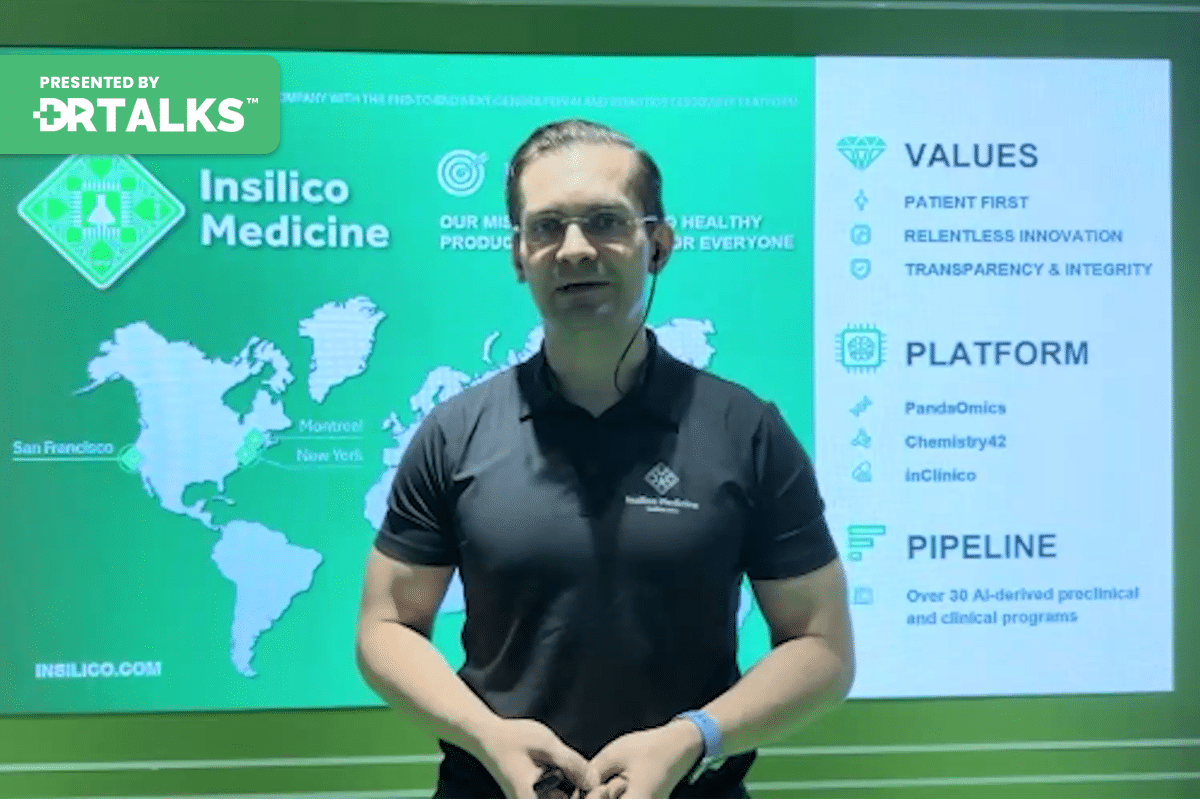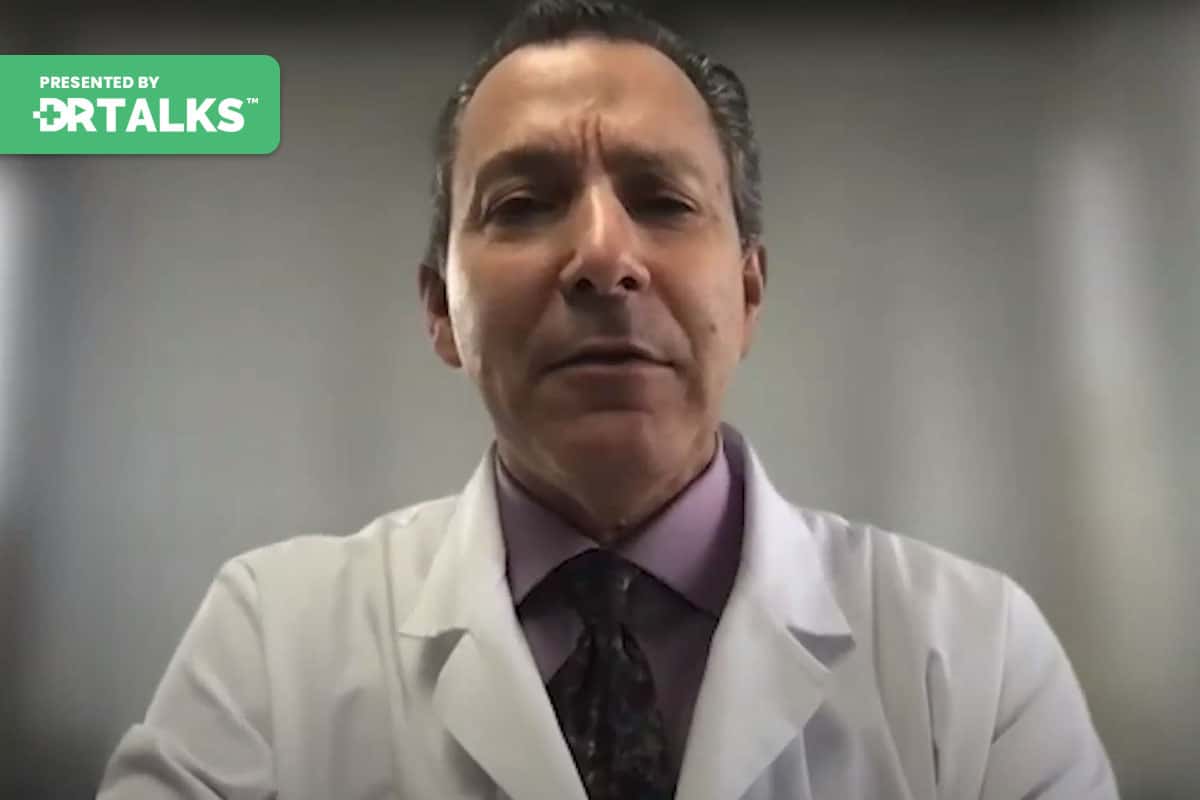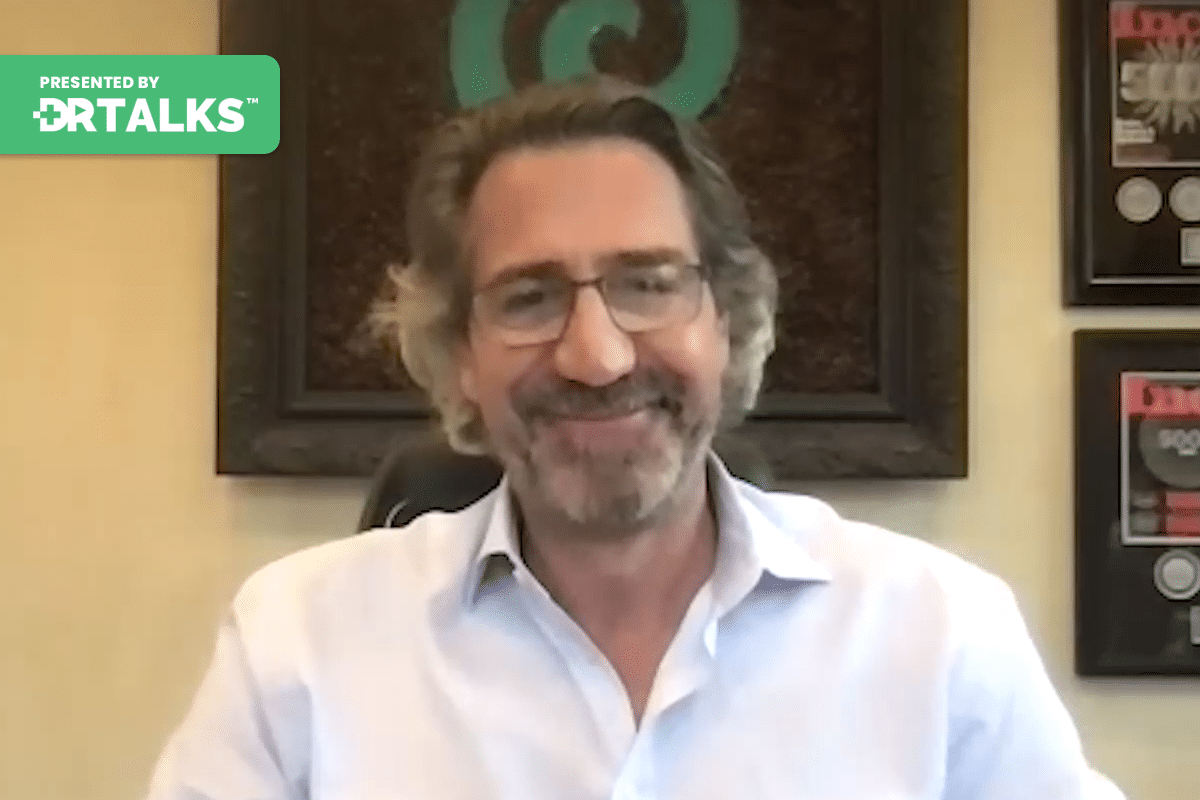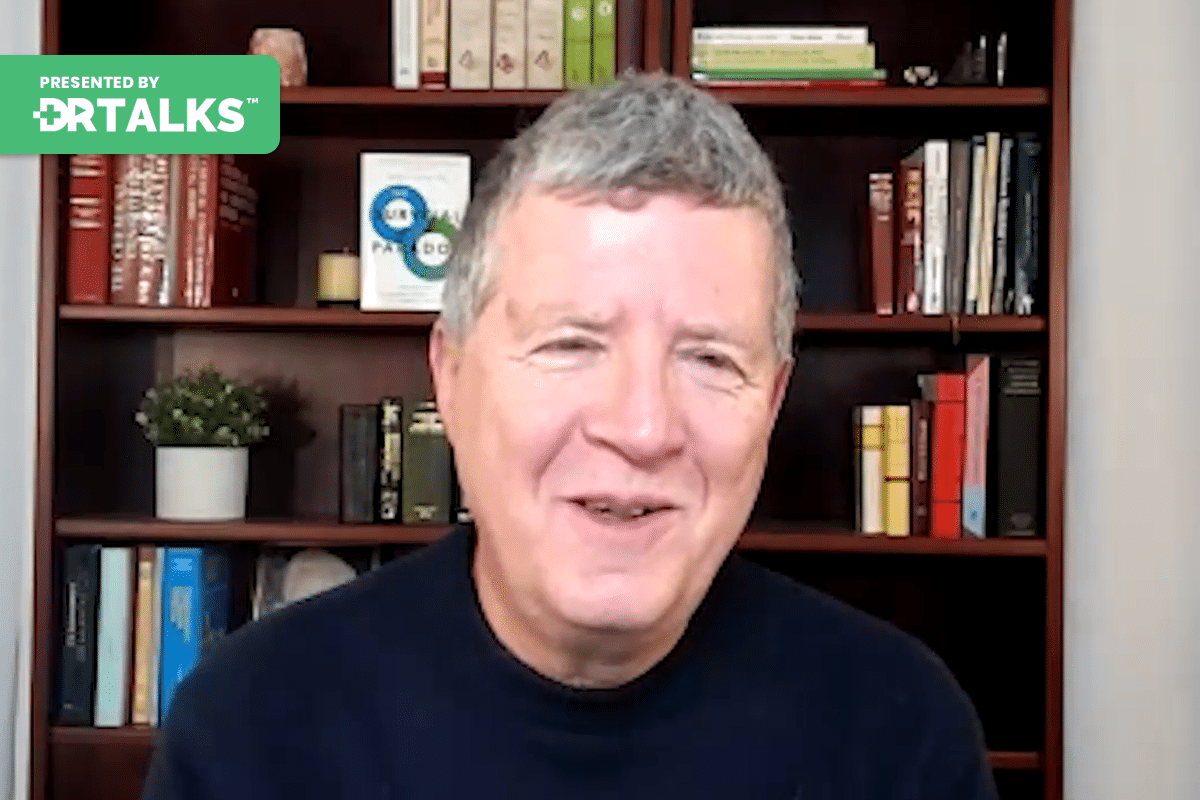Join the discussion below
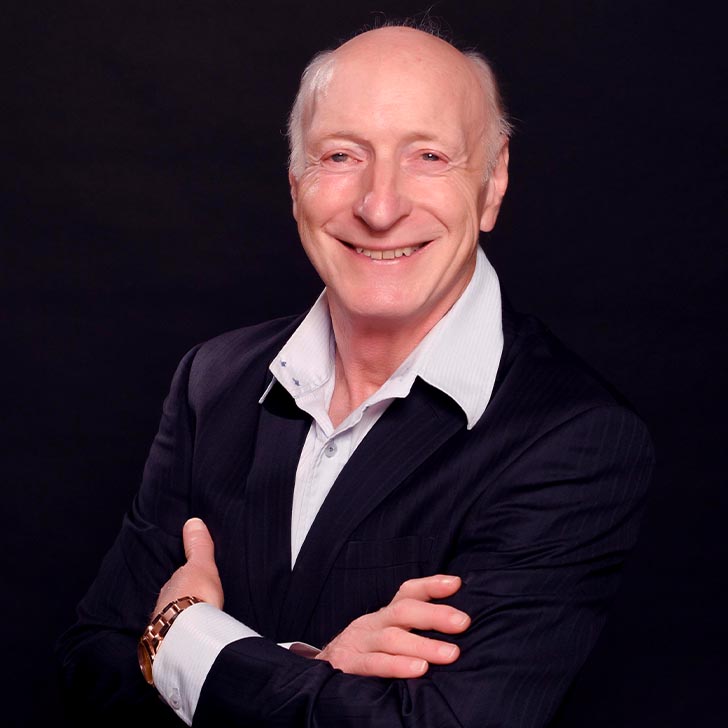
Dr. Stephen Sideroff is an internationally recognized psychologist, executive and medical consultant and expert in resilience, optimal performance, addiction, neurofeedback, leadership, and mental health. He has published pioneering research in these fields. He is a professor at UCLA in the Department of Psychiatry & Biobehavioral Sciences and the Department of... Read More
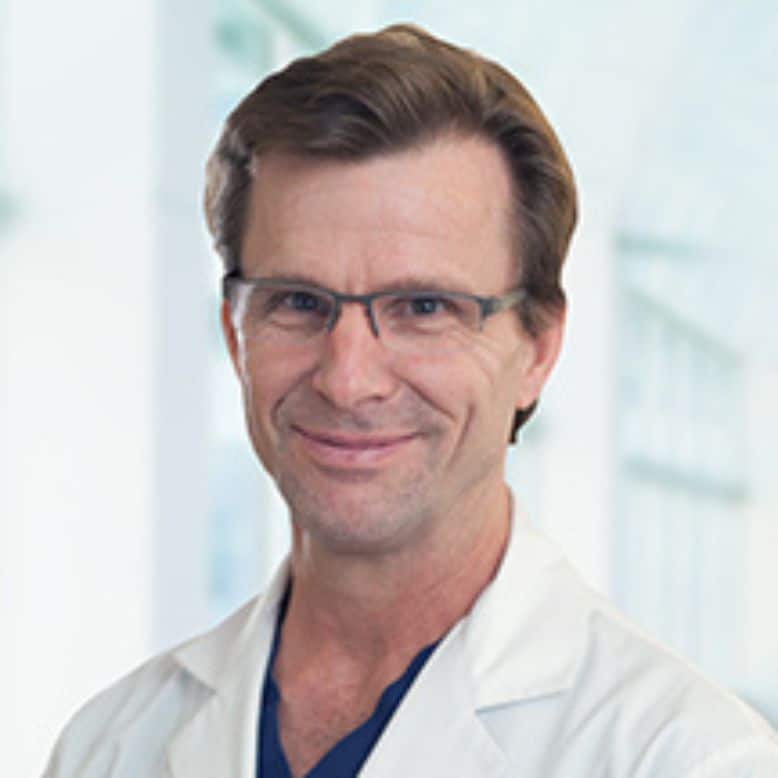
Dr. Daniel Kelly is Director and one of 4 Co-Founders of Pacific Neuroscience Institute, a multi-specialty group of over 35 physicians working across 9 Centers of Excellence. He is Director of Pacific Brain Tumor Center and Pacific Pituitary Disorders Center at Providence Saint John’s Health Center, and Professor of Neurosurgery... Read More
- The paradigm shift with Psychedelic-assisted therapy
- The evidence for psychedelics as neuroplastigens
- Results of clinical trials using psychedelics for mental health
Dr. Stephen Sideroff
Welcome to another episode of reversing inflammaging, summit body and mind longevity medicine. And I’m very pleased in this hour to have speaking with me Dr. Daniel Kelly and Dan is the director and one of the four co founders of the pacific neuroscience Institute, a multi specialty group of over 35 physicians working across nine Centers of Excellence. And more recently he’s the creative force behind the pacific treatment and research in psychedelics labeled the trip program. Dan, welcome, thank you so much for being here.
Daniel F. Kelly, MD
Thanks Steve and Rob for inviting me to participate. Thanks so much.
Dr. Stephen Sideroff
You’re welcome. You’re welcome. Let’s get started by telling the audience what attracted you to working with psychedelics.
Daniel F. Kelly, MD
Well, you know, I’ve been a neuroscientist, I would say for, you know, most of my much of my adult life going into neurosurgery after medical school doing clinical research and clinical trials for a long time, mostly around brain tumors, pituitary tumors, traumatic brain injury. I did a lot of E. B. I research when I was at U. C. L. A. but I had an interest in psychedelics from many moons ago when I was much younger that never quite went away. But and then it was all of course put aside for many, many decades and then I saw it coming back as as we all know in the last 10 to 15 years and I really wasn’t paying attention, I must say until about five years ago and it really caught my attention in part because at the time at pacific neuroscience, we were starting to develop our concept around a brain health center and we developed our pacific brain Health center, which was our last center of Excellence that we created in 2018. And as I learned more and more about psychedelics and psychedelic assisted therapy, I could see that there was really a lot going on there and a lot of potential you know, for mental health disorders and it seemed to me that you know, any self respecting neuroscience institute, if they really wanted to stay current and be involved in cutting edge research that psychedelic science and psychedelic assisted therapy was something that we needed to get involved in.
Dr. Stephen Sideroff
Right, right. I certainly agree with that. Before we dive into the psychedelics, Dan, can you give me your concept of perspective on longevity and aging?
Daniel F. Kelly, MD
Yeah, I think that’s a great question. You know, longevity I see as living well longer you know, if you’re decrepit and frail and you’re falling down a lot and you’re not thinking clearly but you’re still alive. I’m not sure that that is a for me that’s not a form of longevity. I would like to see. I think there’s a lot of potential for healthy aging. And living a fuller, more thoughtful, more cognitively intact. And physically fit life. And to me that’s what that’s what longevity is all about. And so that would be my guess about my definition of longevity.
Dr. Stephen Sideroff
Yeah. Yeah. And certainly when we’re talking about health span for example and quality of life certainly the mental emotional aspect really comes into play quite a bit. Can you talk about what are the most studied psychedelic medicines currently in clinical trials and what disorders are they addressing?
Daniel F. Kelly, MD
Right so the two most studied right now are psilocybin and M. D. M. A. psilocybin which comes from magic mushrooms but is made synthetically now for most of the clinical trials. And it’s being looked at for a wide array of mental health disorders but most commonly right now for depression also for anxiety. End of life existential crisis. That sort of thing. And M. D. M. A. On the other hand which is a synthetic also known as ecstasy And a difference is it’s an amphetamine base It’s also considered more of an am pathogen. And it has been studied most intensively for PTSD. In terms of the timing and the track you know the M. D. M. A. Studies are much further along. Thanks to maps. And Rick Doblin is work over now. You know more than 30 30 years of working on getting M. D. M. A. Assessed and hopefully rescheduled. They’ve completed two phase three trials. One was published very positive for all across all types of PTSD. And the other one has just been completed. And I think the results will actually be out sometime within the next, you know, month or two. And then they will work to try and get it rescheduled and approved for use clinically for PTSD psilocybin is now in phase two trials. Both use Ona and compass have completed to phase two, Phase two trials for either major depression or treatment resistant depression. With positive results, those two arms of depression will both likely be going into phase three trials. They are going into phase three trials this year. So those are the two that are leading the way right now.
Dr. Stephen Sideroff
So can you give us a little bit of your experience in the work that the specific work that you’re doing at the Trip Center and some of the initial results that you’ve gotten
Daniel F. Kelly, MD
Right. So we were fortunate to be able to form the treatment and research and psychedelics program at P and I Trip program. It’s led by Keith Hines Erling who’s an addiction medicine specialist and really doing an amazing job. I’ve been helping quite a bit. We have some amazing psychedelic guides. We’ve been able to complete to claw trials the first and both with psilocybin, both in collaboration with you Sona. The first was an investigator initiated trial looking at alcohol use disorder. And this was actually a collaboration with Louie Schwartzberg, the filmmaker who did fantastic fungi. And we had a protocol in which individuals, it was open label. So everyone got psilocybin. They got to to psilocybin journeys separated by four weeks.
And they were randomized to either have this visual healing component to the set and setting model or two standard set and setting with eyeshades and music. And so the hypothesis was that watching a nature connected video that Louis curated for us approximately 40 minutes at the beginning of their journey might help an individual achieve a higher likelihood of achieving the mystical experience. And potentially a higher likelihood of reducing or drinking to a greater degree. So we did that trial. It was 20 individuals. We completed the trial. We’re looking at the data. Now I can tell you without, we don’t have published data, but we did see a dramatic decrease in drinking behavior in both groups. Those that had the standard set and setting, you know, eyeshades and music and those that had the visual healing.
Hopefully this will be published within the next, you know, several months, but similar to what other studies have shown, there was a paper out by Dr. Bogan Shoots and group at N. Y. U. With a larger group with a randomized trial for alcoholism and suicide and very very positive results. So we have that alcohol use disorder study. And then we also participated in the multi site trial with you sona for major depression and we enrolled a number of patients for that trial, use ona is in the process of finalizing the data analysis on that. And as I, you know, indicated, I think the results will likely be positive as other trials have been and will lead to a phase three trial. We’re also in the midst of just starting a trial related to with the use of LSD for anxiety. And then we have an investigator initiative trial that will probably be doing for patients with brain tumors. And as you may know in most of the trials, to date patients with intracranial lesions, Brain tumors in particular have been excluded and we think that they probably don’t need to be excluded provided they don’t have an active seizure disorder. So we’re hoping to do that and we have some other things in the pipeline as well.
Dr. Stephen Sideroff
That’s interesting. I had thought my friend and colleague chuck Grobe originally did some of the early research where I think they were terminally ill brain cancer patients.
Daniel F. Kelly, MD
So, my understanding in that original study that Charlie Grove did, they were all, they had extra cranial cancer. I don’t think any of them had brain cancers and all the studies prior, the larger studies have excluded brain tumor patients. And I think as you know, being a brain tumor surgeon, I see lots of these patients, they have a tremendous amount of mental anguish, an existential crisis and I think many of them could greatly benefit. And now that, you know, the word is out sort of on psychedelic assisted therapy and our patients tend to be fairly educated. A lot of them are asking about it and I think there is a need. So hopefully this is a trial that will will get done and we’ll get some good safety data, at least on our private trial.
Dr. Stephen Sideroff
So, I notice one of your groups, the goal was hopefully to produce a mystical experience. I know there’s some research that shows that perhaps the active, the fact that’s most significant in terms of remediation from depression is inducing a spiritual experience. What was your experience around that?
Daniel F. Kelly, MD
Well, I can’t cite any of our specific data, but certainly many of our patients, probably the majority had what we would qualify as a mystical experience based on this myth experience questionnaire. There’s there’s a few sort of validated scales that are used. And so certainly we’re seeing that in our patients as well as to whether it correlates with their ability to reduce their drinking. I don’t have that data yet. But we will we certainly we certainly will be having that data. Yes.
Dr. Stephen Sideroff
So these psychedelic medicines are thought to be in Europe last regions. Can you give the evidence for such you’re a plasticity?
Daniel F. Kelly, MD
Right. Well there’s been some very good animal studies over the years, looking at the classic psychedelics, psilocybin and LSD also looking I believe at D. M. T. and then also even within the the M. D. M. A. Literature and ketamine, which is you know, is a you know used off label now in a psychedelic assisted therapy model. All of them are in Europe last regions to some degree with the classic psychedelics. You know? There there is evidence that through things such as m tor mammalian target of rapid mayes and BDNF some of these other neurotrophic factors that they actually promote long term changes in the brain which including synaptic density or dendritic, dendritic sprouting those sorts of things and and essentially neurogenesis. And you know, when you think about what is so fundamentally different about psychedelic assisted therapy, you compared to the sort of daily pharma copia approach of a daily medication for anxiety, depression, you have to ask, well, how is it that one suicide in journey or to psilocybin journeys can make someone stop their drinking or be less depressed for, you know, six months a year or perhaps, you know, for the rest of their lives.
So there’s some durability process going on. There’s some change. And I think that the basic science data in the laboratory and the clinical data showing this durability are sort of coming together in a nice way to show that the only way this could be happening is if these are in fact you’re a passage in there somehow allowing the brain to regrow new connections. And and through these new connections, people are being able to modify their behavior, you know, or understand their behavior and have, you know, lasting behavioral change. So I don’t pretend to understand the deep neuroscience of it. I don’t think anyone does. I think this is part of the reason why this is such a fascinating area of the neuroscientist right now and there’s so much good work to be done ahead.
Dr. Stephen Sideroff
Yeah, I completely agree with you on that. And I’m and yes, the fact that a single session can have such a tremendous long lasting impact points to other potentials for this approach. So how might the neuro plastic sense of psychedelics and psychedelic based therapy? How might that impact aging and longevity?
Daniel F. Kelly, MD
Well, if you take a couple, you know, I was thinking about this with the focus on longevity, if you just take a disease like alcoholism or depression, those are life shortening diseases right by a large amount. You know, some alcohol studies, I’ve read, you know, 10 or 20 years, a couple of decades, maybe off your life for someone who drinks heavily. So if you can Essentially stop someone from drinking themselves to a much shorter life because they reframe their relationship with alcohol. Well, that’s gonna have a pretty huge impact on longevity on that individual. So instead of dying, you know, at 55, they may die at 75. And so but that’s more on a sort of a behavioral modification approach. You know, you’re ending this risky behavior and and take a depressed patient, you’re not gonna commit suicide. So that is automatically going to have a huge impact on longevity. The other interesting area that I think really needs study is can these molecules and some at even potentially sub psychedelic doses, can they somehow create enough new connectivity. Dendritic increase, you know, synaptic genesis, however, it’s measured. Can that in itself allow someone to, you know, function at a higher level, a more cognitively higher level and potentially lead to, you know, longevity to translate into a better full or more functional life.
Dr. Stephen Sideroff
Yeah. Even in the longevity realm, we can divide the approaches to how do you sort of correct for disability? How do you correct for impairment on the one hand, but the other is if you have a healthy person, how do you help that person live longer? And we may be looking at, you know, a couple of different sets of mechanisms. But here we can talk about psychedelics as they’re currently used, but if and when they are reclassified so that they’re available to more people. Can you imagine think of psychedelics for the Betterment of the well.
Daniel F. Kelly, MD
Yeah, I think that’s a very big question and I do see it as a potential way to extend people’s lives and livelihood. We have a long ways to go and obviously we all have to be very careful about how much hype there is and promotion of this now. But I do think the Betterment of the well is a concept that is worth exploring simply because from what we can tell with these molecules certainly with things like psilocybin and LSD, they seem to be quite safe physiologically. They’re not addictive. They don’t, you know, have marked changes in blood pressure etcetera. And so I think it’s worthy of pursuing you know, we have these sort of foundational elements of diet, exercise and sleep. Is this another, you know, overlay of something to extend things a little bit, a little bit longer perhaps.
Dr. Stephen Sideroff
So we’ve talked about, you know, single doses, but what’s coming into play more and more is the use of psilocybin, LSD other psychedelics in a micro dose ng protocol. Can you say something about that and what your thoughts of how that might be effective.
Daniel F. Kelly, MD
So there’s not a lot of good data on this. There’s a lot of anecdotal data from people like James Fat Woman who wrote a book called the Psychedelic Explorer’s Guide about a decade or so ago. A very good book. And he back in the day, even in the sixties, he did some interesting micro dosing work and a lot of people have been doing it more and more. It’s certainly out there in the community. Micro dosing essentially means using a sub psychedelic dose. So for LSD that would be probably 10 to 20 micrograms of LSD for psilocybin. You know, with a sort of standard large large dose that we give in the clinic is around is 25 mg. So 2 to 3 mg, something like that. Or you know, 30.2 g of dried mushrooms. The so called Fatima protocol is to do this every third day. Most people don’t really notice that they’re on it.
But they do notice some improvement in perhaps their mood the way they look at things, their appreciation of others. They’re maybe not as edgy. And I think we need some some studies you’ve done on this. You know what one area that I think is a really interesting area and this also gets towards longevity is in the realm of dementia and mild cognitive impairment. You know, could could a a micro dosing regimen of say LSD over the course of six months change the course of someone who with with EMC i instead of going on into full blown Alzheimer’s actually Plateau or perhaps even improve and and you know, I mentioned that in in part because some of these animal studies that have been done have been used that they’ve looked at dose ranges and LSD I think is particularly potent and and obviously it’s extremely potent when you know you can have a major psychedelic experience on 100 micrograms. It’s just you know, a very small amount of the molecules.
But so these initial animal studies have shown some significant changes in you know, neurogenesis synaptic genesis even with these small doses. You know, the question is, is it good synaptic genesis? I mean you can have rewiring of the brain but it may be of no benefit, it may not help cognition or memory. So we just don’t know, but I think it’s a really intriguing question and probably someone will be doing that research in the future I think.
Dr. Stephen Sideroff
Well it certainly gives the potential raw materials for some positive results if you’re increasing synaptic genesis. I mean that’s one of the issues with any kind of dementia. So it’d be interesting to see if maybe that in conjunction with some other approaches might be able to direct those changes.
Daniel F. Kelly, MD
Right, well, you know, we we just published a paper recently in a neurosurgery journal and and it was really focused at neurosurgeons and neuro oncologist because my colleagues I worked with very closely, most of them know nothing about the psychedelic renaissance or psychedelic assisted therapy. They know a little but they don’t really know too much. And so this was really a sort of A level set effort to educate them on the basics of what’s going on in psychedelic science now and potential applications relevant to neurosurgery neuro oncology.
And I think one of the interesting things is you know we treat in neurosurgery we do deep brain stimulation or Parkinson’s disease and there’s some potential thought of using it in things like depression or O. C. D. Or anorexia. And you could and at the same time those exact same illnesses are being assessed in psychedelic assisted therapy trials. Right. So you could potentially look at at synergy between those two techniques. You could use neuromodulation through TMS trans magnetic stimulation or dBS and add on to that micro dosing regimen for example and you might get a synergistic effect. So I think there’s so many possible studies to be done out there and interesting you know novel avenues in this realm that we were just scratching the surface.
Dr. Stephen Sideroff
Right. Right. Yeah. Well talking about synergy we have spoken with a couple of people who have been trying out the effectiveness of rapper myosin in conjunction with ketamine for depression. And initial findings seem to be that it actually enhances the effects on depression of ketamine by adding the rapid mason. Which actually turns down M. Tour
Daniel F. Kelly, MD
Wow okay. That’s a very interesting interesting thought. There was also another recent paper with ketamine a single dose of ketamine for depression. Where then after in one group they had them do sort of a task of sort of positive visualization. I’m forgetting the exact task that they did. But it the bottom line was that they it’s a concept of this sort of window of opportunity this period this critical opening period that where where the effect of the ketamine or another psychedelic can have. You know you can multiply or synergize the effect if you add this additional sort of learning stimuli. And so I think that’s another area where you could have potential synergy that could increase the durability of the effect. Which is what they showed in the group that had this visualization technique there. The durability that the lifting of their depression lasted significantly longer than in the control group.
Dr. Stephen Sideroff
Yeah so we may get to a place where we use one or another of these psychedelics as a tool to enhance the use of some other approach.
Daniel F. Kelly, MD
Yes I mean sort of priming the tank.
Dr. Stephen Sideroff
Right. Exactly. Right. Exactly. I believe your laboratory is planning on introducing five M. E. O. D. M. T. To your work. What additional value do you expect by adding that? And can you explain to the audience what exactly that molecule is doing
Daniel F. Kelly, MD
Well. Five M. E. O. D. M. T. Is another one of the classic psychedelics. And it’s in the same general class of psilocybin. And LSD is a trip to mean. And it’s also the compound known as the found in the toad venom. And it’s a very relatively short acting psychedelic or hallucinogen and very profound . It’s been described as blasting off into space and you know becoming particulate matter with a deep sense of nothingness. And we are probably going to be involved in a clinical trial. I believe for depression I don’t I don’t know too many of the details on that. But it’s another compound that is out there that can now be made you know synthetically obviously and will be explored like psilocybin is now and L. S. D. And M. D. M. A.
Dr. Stephen Sideroff
Well it’s certainly make certain certain aspects of research more possible because it’s as as short acting as you describe
Daniel F. Kelly, MD
Right. And you know I think there’s a lot of individuals out there trying to create designer molecules that in fact are much shorter acting. Whether I mean we know that you can you can have a profound mystical experience with with five M. E. O. D. M. T. Whether you can you know modify some of these molecules to get a much shorter experience whether that’s going to be sufficient. I think that’s a question that people have. Is there a point where you shorten it so much that it’s it’s not it’s not meaningful. Five M E O. D. M. T. Is a is that I think it it’s already there, it’s already very short and I think we’ll just have to see how how that works in terms of resolving people’s issues, you know, regarding whatever the target is, whether it’s depression or anxiety or addiction.
Dr. Stephen Sideroff
Right. Right. You know, set and setting of the use of psychedelics is so important. Could you make a few comments about that and what your experience has been?
Daniel F. Kelly, MD
Yeah, I think that all the clinical trials that are done now use this so called set and setting model setting the mindset of the individual, what their issues are their life history, what their intentions are setting is is the the place, you know, the room or if it’s done outdoors who the guides are and very importantly the music. And this combination of set and setting is really what I think is so critical to having a safe and hopefully profound transformational journey that is having experienced guides. Having guides that kind of understand the spectrum of behavior of encounters that people may have making sure that the mindset of the individual that they have a sense of, you know, trust and trust of the individuals trusting the process and sort of fortitude about going into this experience because you know, these are obviously very powerful substances and and sometimes the the medicine will take people to very dark places. And this is where sort of the important things probably happened.
And as you know, the mantra that’s often used is trust, let go and be open. You know, trust the process, let go of your rigidity of your, your attempt to control the process and be open to what unfolds. And so I think that this setting setting model which was really probably originally described by timothy leary and his colleagues back in the day has really been away stood the test of time and is really important model and it goes back beyond timothy leary. It’s just a sort of shamanic model that we owe a lot to be able to do the work. So it’s a critical part of the treatment model
Dr. Stephen Sideroff
Referring to the shamanic model. I know that many of the indigenous proponents of, of psychedelics, Ayahuasca and others, these shamans for them, they revere these substances and they consider them being handed down by the gods for sacred use and that they get become concerned about these substances being used for just recreational purposes. Do you have any kind of perspective on that?
Daniel F. Kelly, MD
I think we owe a lot of respect and gratitude to those, you know, cultures over the, you know, over the centuries and going way back, you know, perhaps back as far as 5000 years or more. I don’t think we would be where we’re at if it weren’t for those, those cultures bringing these two, you know, to us in, in the west and around the world and, and you know, I think when, when I did the training at, at the California Institute of integral Studies with, I’ve done the psychedelic training there, there’s a lot of respect and gratitude paid to these indigenous cultures and I think not only because they’ve been doing it for so long, but in fact it’s a model that seems to work, you know, this is a model that in a way has been road tested in the, you know, in the, in the so called clinic of these, of these, the indigenous clinic. And so it’s very, it’s very important that that respect be given.
Dr. Stephen Sideroff
Yeah, I certainly would agree parenthetically many, many years ago, I was involved with an organization called rock Medicine and we would actually go to rock concerts and we would set up rooms where we worked with and treated people who are having bad trips. Which of course there were always, we always had visitors and
Daniel F. Kelly, MD
I’m sure
Dr. Stephen Sideroff
Those settings. Yeah, Yeah.
Daniel F. Kelly, MD
Well, and I think that, you know, that’s exactly right, and that’s what that’s what happened. I mean, people, people took it out of sort of the context where it was originally being practiced and you know, timothy leary and and Ramdas before he was Ramdas, they they had good intentions, but then it went, you know, out of academia and you know, off the reservation and off the rails and lots of people were getting getting hurt because they are powerful medicines and there was no, there was no set and setting. They didn’t know what they were doing.
Dr. Stephen Sideroff
Yeah. And so, you know, the actual research is showing that perhaps some of the most potent factors in getting results is the spirit, is the spiritual nature of these experiences. And so that’s to me that’s another interesting factor here on how that has an impact on us,
Daniel F. Kelly, MD
Right. You know, when we designed the alcoholism trial in collaboration with Louie Schwartzberg, I mean, this was really the hypothesis that this nature connectedness was an important part of the experience and this, watching this beautiful video with beautiful music would be a way to sort of launch the person into what ultimately would hopefully be a mystical experience. And I think you know, a lot of the clinicians in this space, those of us that are nature lovers, I think most of us are feel that eventually we need to put in, we try to work that into these paradigms. You know, it’s very hard to do when you’re dealing with I. R. B. S. And clinics and big healthcare systems to say, you know, we wanna do a trial in the outdoors that’s gonna take a while and it may be a long time before we can do that. But I do think that that will be another area that’s looked at.
Dr. Stephen Sideroff
Yeah. You know, as we’re having this conversation, I’m thinking about one of the concepts that I use to describe to talk about resilience, which I believe is associated with longevity. And I talk about how we as an organism are an instrument and we get tuned to two different things. Like we get tuned to the lessons of our childhood or we get we are tuned even earlier than that to the the stress response, the survival response that we engage every day. We’re tuned but we’re tuned to a model of the stress response that does, that’s not, it’s like not our current environment. Where so we’re tuned to the wrong environment from a evolutionary perspective, we’re tuned to a wrong environment from a developmental perspective. And I’m wondering with the use of psychedelics if it’s helping to retune our organism in a sense to a more sort of universal grounding based on nature based on spirituality that might help our organism function better for greater longevity.
Daniel F. Kelly, MD
I think you’re definitely onto something? I absolutely agree with you. And I think many, many others, including people like Terence McKenna, would think so as well. So yeah, I think, psychedelics help us get back to the essence of how lucky we are to be here on this planet, how beautiful it is. All the opportunities we have, the ability that we, that we have this, you know, cognitive ability to actually see it, appreciate it, hopefully make it better. That increasingly seems to get lost on way too many people on the planet.
And it’s just a grind to survive. So yeah, I think the nature connectedness is really an important theme and I just wanted to add that, you know, as a, as I’m sure you, you know, there there’s many sinners like this already that are out in nature, you know, in the, in the Netherlands, for example, in Jamaica and Costa rica areas, outside of the United States where the, this this sort of shamanic model out in nature is being, is being practiced. I’m sure such things are being planned in Oregon already, probably in Colorado too. And it’s the, this is coming as well. I just, it’ll be interesting to see, you know, in five years we’ll be having a much different conversation than we are today.
Dr. Stephen Sideroff
Right, well, that leads into my next and actually the last question here is, what are you most excited about in terms of the future in this space we’ve touched on it. But what would you say?
Daniel F. Kelly, MD
Well I think if you look ahead from the, just the regulatory standpoint, the clinical trial standpoint, I would say that we’re hopefully looking at M. D. M. A. Being approved or rescheduled in 2020 for hopefully looking at psilocybin being rescheduled for major depression treatment resistant depression in maybe 2026 or 27. There may be some legislative events in different states, like there’s already been in Oregon in Colorado maybe even in California here that will increase access and I think you know every day now Keith Hines Erling and I and our colleagues get asked, you know, how can we how can we get involved, how can we do this? We have someone who’s super depressed who’s addicted and you know, outside of a clinical trial, there’s not many options. You know, there are options but there’s not options that we can, you know, really recommend unless you want to go out of the country.
And so I’m hoping, you know, even in five years that the access will be much greater. Because we have this mental health crisis going on that’s just enormous and our current treatments don’t really work very well. So I think there’s I think there’s we’re getting close to some critical mass here. There’s a lot of momentum, there’s a lot of hype, you know, and we have to see how these trials play out. But hopefully psychedelic assisted therapy will become, you know, part of the standard of care for mental health disorders, you know, within a few years at least in some locales. So that’s what I’m most excited about and that we’re being, you know, we’re able to participate in this with our multiple clinical trials and offering therapy for patients in need.
Dr. Stephen Sideroff
Well that’s great, Dan and Rob and I are certainly going to keep coming back to you for your latest updates. And we already have plans will make plans for us to come and visit your place where you’re offering this treatment.
Daniel F. Kelly, MD
Thank you. Thanks Steve, thanks Rob. It’s been a pleasure.
Dr. Stephen Sideroff
Yeah. Thank you very much. Wonderful conversation. Thanks Dan.
Daniel F. Kelly, MD
Thank you.
Downloads

